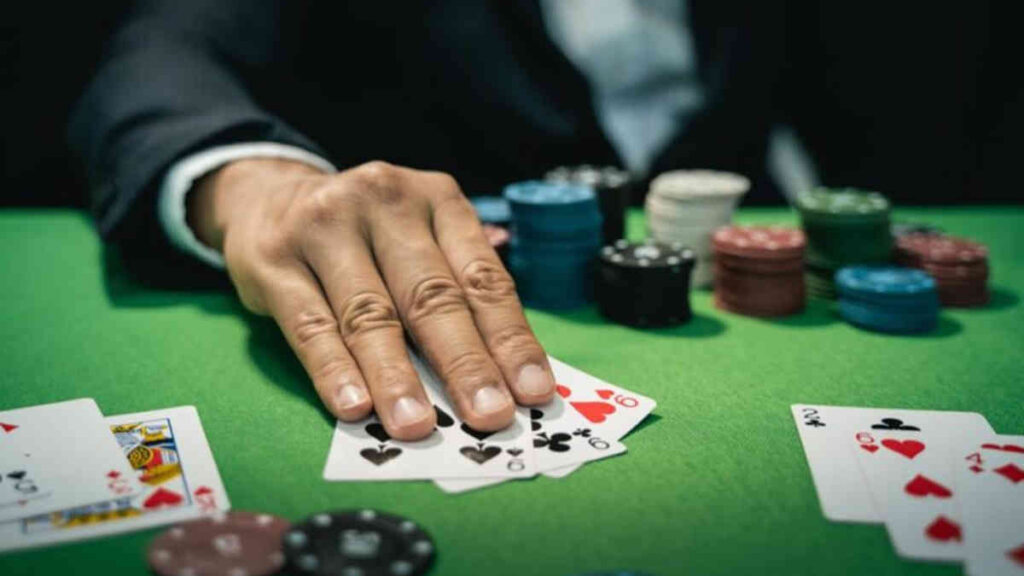Up to this point, it has always been said that poker is the “people’s game.” Being one of the few games within which total novices may sit opposite expert players, there may be an opportunity for an unseasoned player, with a little bit of luck, to come out ahead.
There are no barriers of age (as long as you’re of legal age to gamble, that is), background, or education. Everyone buys in, everyone gets cards, and everyone has a shot.
And yet, most players nowadays believe they have almost no say at all in how their respective clubs or apps are being run, in total contradiction to the general concept of the people’s game.
Decisions are made in the dark. Management decides what formats to run, what promotions to offer, how to structure rake, and even who gets to play. The lifeblood of the entire ecosystem, players are treated more like customers than empowered members deserving of a voice.
But suppose that poker wasn’t destined to be that way?
What if those very dealers at the tables had a say over how the tables were being run?
This is poker democracy.
So, from Top-Down Control to Bottom-Up Freedom.
Poker clubs have functioned as businesses in the traditional sense. You played under the rules of the system put before you. If you liked the games and promotions, you stayed. If you didn’t, you left.
Poker democracy flips that around. Rather than being passive consumers, players are now treated as stakeholders in the room’s development. It may be a small pinch of a change in theory, but it is a big concern in practice.
A club run “for the players” becomes a club run “by the players.”
What Democracy Means in Poker
The principle is simple: every active player has a vote on decisions affecting important issues.
- Game Selection: Want to try out a weekly Omaha night? Excited about Short Deck or incorporating mixed games? Vote for it, not wait for management to decide.
- Club Features: New bonus systems, leaderboard structures, and player formats are entirely up to the players to approve or reject.
- Player Eligibility: If the conduct of any one individual is disruptive or if an individual is simply dominating to the degree that recreational players are being driven out, they can be voted out by community consensus.
This is not theory; this is now reality.
An Example in Practice: Second Wind Club on ClubGG
In the eyes of the agora of poker, Second Wind is one of its first clubs to host lucid democracy.
The Second Wind Club (ID: 676758) allows it’s members to vote on how the club operates and runs itself. Polls administered on a private telegram serve as a meeting place for members to discuss proposals directly.
Players vote on which formats should be played, what features should be implemented, and whether or not to eliminate individuals if they are damaging to the ecosystem.

But it’s more than merely polls: every Monday, the club sends out into that Telegram channel the weekly statistics of every single member of the club. Therefore, everyone can take a look at results, performance history, and trends—total transparency.
This transparency really sticks weight behind every vote; if someone is just crushing down the competition too far, the number does not lie.
To put it differently, behind-the-scenes hocus pocus ceased; it became about the players themselves protecting the game they love in an open, honest manner. If the Second Wind’s concept sounds interesting to you, you can read more about this new ClubGG project.
The Value of Voting
Poker is finicky. Recreational players are what keep games afloat, but they are very quick to burn out if they feel that they are being outmatched by crushers and pros. The more skewed the field gets, the faster the games die.
Democracy takes care of that. When everyone has a say, the players can actively manage the balance of these fields. They remain fun, entertaining, and fair.
At the same time, it creates trust that runs deep. The moment they see their stats made publicly, when they see things happening transparently, and when they have the final say in any decision-making, this is when an opportunity arises for them to feel like they belong.
Poker Democracy Holds Some Opposition
Surely, any system is subject to its drawbacks.
How might the majority act in their own best interests in the short term, making decisions like voting for a bonus they cannot sustain?
Should every player be entitled to an equal voice? Or, perhaps, only those who are in play that week?
What means are available to prevent a small cartel of players from unilaterally accusing stronger opponents?
While real, these are solvable problems. For instance, clubs like Second Wind have made its voting power dependent solely on participation, so that only active members actually get to vote.
A regime of openness regarding statistics serves to ensure that decisions are not made on baseless rumor or spite. These systems could run smoothly with more tweaks and refinements.
The Next Large Leap for Poker
Poker has already undergone many changes, from smoky backrooms to glitzy televised tournaments, online cash gaming to experimental new formats like Spin & Go and Short Deck. However, players have always had little say in how their environment is managed.
This may finally be changing.
Democracy within poker clubs offers players more than just a seat at the table. It builds ownership, loyalty, and a voice. This keeps ecosystems healthy, protects recreational players, and builds a sense of community beyond any top-down construct.
It changes more than how players present. It changes how players choose to live.
The Wrap-Up
Poker democracy is no gimmick. It’s an organic answer to the issues plaguing most rooms today: imbalance, lack of trust, and disconnect between players and management.
It is not just talk; there is already a live example in Second Wind (ClubGG ID: 676758), where a private Telegram group allows players to decide, completely open statistics exist, and the club’s future is literally created by its players.
It’s brave. It’s different. And, like any good poker hand, it is an element of risk. But through everything poker has taught us, the ones who take the risk reap the biggest reward.
Now, the debate is not about whether poker democracy will work. Instead, it is about when and where poker democracy will become standard practice.
